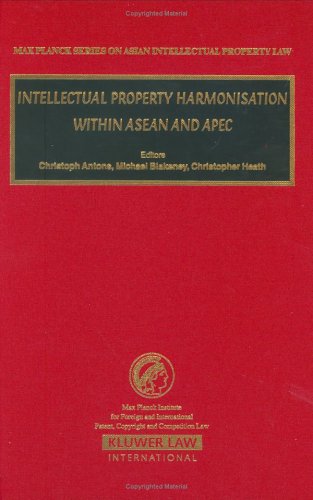
In several major areas of international trade-particularly software and technology transfera harmonised regime of intellectual property law is a crucial prerequisite to success. Yet this legal concept appears to be extraordinarily difficult to establish on any agreed-upon basis among countries. And nowhere has the sought-for harmonisation proven more intractable than in the countries of the Asia Pacific region.
Intellectual Property Harmonisation in ASEAN and APEC investigates the complex issues that lie at the root of this major block to the unhampered global flow of commerce based on intangible assets. By highlighting the background of Asian legal systems, both in terms of culture and intellectual property systems, the authors suggest how the current obstacles towards greater harmonisation and integration may be overcome.
Defining the accepted principles enshrined in TRIPS, the Paris Convention, and other international agreements, the presentation describes the relatively successful European experience and then goes on to develop strategic variations geared to relate more precisely to harmonisation, integration and co-operation in the East Asian region.